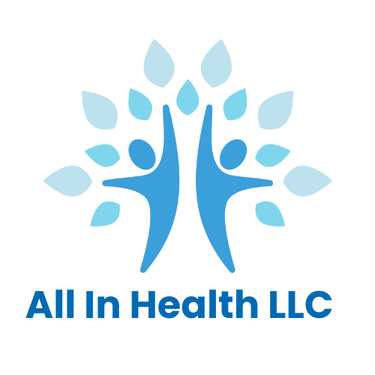Why People Don’t Seek Help for Addiction and Mental Health
Seeking help for addiction, substance use disorder (SUD), or mental health concerns can be life-changing, yet many struggle to take that first step. Despite the availability of treatment and support, countless individuals suffer in silence. So, what holds them back? This blog explores the most common reasons people avoid seeking help, from stigma and fear to financial and personal obstacles. Understanding these barriers—and how to overcome them—is essential for healing and recovery. If you or a loved one is struggling, know that support is available, and taking that first step is a sign of strength, not weakness.
All In Health
2/14/20253 min read


Seeking help for addiction, substance use disorder (SUD), or mental health concerns can be life-changing, yet many individuals struggle to take that first step. Despite the availability of treatment and support, countless people continue to suffer in silence. So, what holds them back?
Here are some of the most common reasons why individuals don’t seek help—and why breaking these barriers is essential for healing and recovery.
1. Stigma and Shame
One of the biggest reasons people avoid seeking help is the stigma surrounding addiction and mental health. Society often views these struggles as personal failures rather than legitimate medical conditions.
Many fear being labeled as "weak" or "broken."
They worry about judgment from family, friends, or coworkers.
Some believe they should be able to "fix it on their own."
This shame can make it incredibly difficult to reach out, even when help is needed the most. However, addiction and mental health challenges do not define a person’s worth—seeking help is a sign of strength, not weakness.
2. Denial or Lack of Awareness
Some individuals may not fully recognize the severity of their struggles. They may tell themselves:
"I have it under control."
"Other people have it worse than me."
"I can stop whenever I want."
Denial is a powerful defense mechanism, especially when facing the painful reality of addiction or mental illness. It can take repeated negative consequences—losing a job, damaging relationships, or experiencing health issues—before someone acknowledges they need help.
3. Fear of Change or Withdrawal
For those struggling with substance use disorders, the idea of quitting can feel overwhelming. Withdrawal symptoms can be physically painful and emotionally distressing, making many hesitant to stop. Even beyond withdrawal, there’s fear of:
Losing friendships or social circles tied to substance use.
Facing emotions that have been numbed by substances.
Changing familiar routines, even if they are unhealthy.
Fear of the unknown can paralyze someone from taking action, even when they recognize they need help.
4. Lack of Access to Treatment
Many people face practical barriers to getting the help they need, such as:
Financial concerns: Treatment can be expensive, and not everyone has insurance or resources to pay for care.
Limited availability: Some areas lack mental health or addiction treatment centers, making access difficult.
Long wait times: Even when someone wants help, waiting weeks or months for an appointment can be discouraging.
Logistical issues: Transportation, work schedules, or family responsibilities can make attending treatment difficult.
5. Fear of Consequences
Some individuals worry that seeking help will negatively impact their lives, including:
Job security: They fear being fired or facing workplace discrimination.
Legal concerns: Those with a history of substance use may worry about legal consequences.
Custody issues: Parents may fear losing their children if they admit to struggling.
These fears—whether real or perceived—can prevent people from reaching out for support.
6. Mistrust in the System or Past Negative Experiences
For some, previous negative experiences with treatment providers, therapists, or rehab centers create doubt about seeking help again. They may feel:
They weren’t heard or understood in past treatment settings.
Their needs weren’t met, or they relapsed after treatment, making them feel hopeless.
Mistrust of the medical system due to cultural, racial, or personal reasons.
These concerns highlight the need for compassionate, individualized care that respects each person’s unique journey.


Breaking the Barriers: Encouragement to Seek Help
If you or someone you love is struggling with addiction or mental health concerns, know that help is available—and recovery is possible.
You are not alone. Millions of people have walked this path and found healing.
You deserve support. Struggling with addiction or mental health does not mean you are weak or broken.
Treatment works. Whether it’s therapy, medication, support groups, or rehab, there are many options available.
It’s never too late. No matter how long you’ve struggled, recovery is always within reach.
Seeking help is a brave and life-changing step. Breaking through these barriers may not be easy, but your future is worth it.
